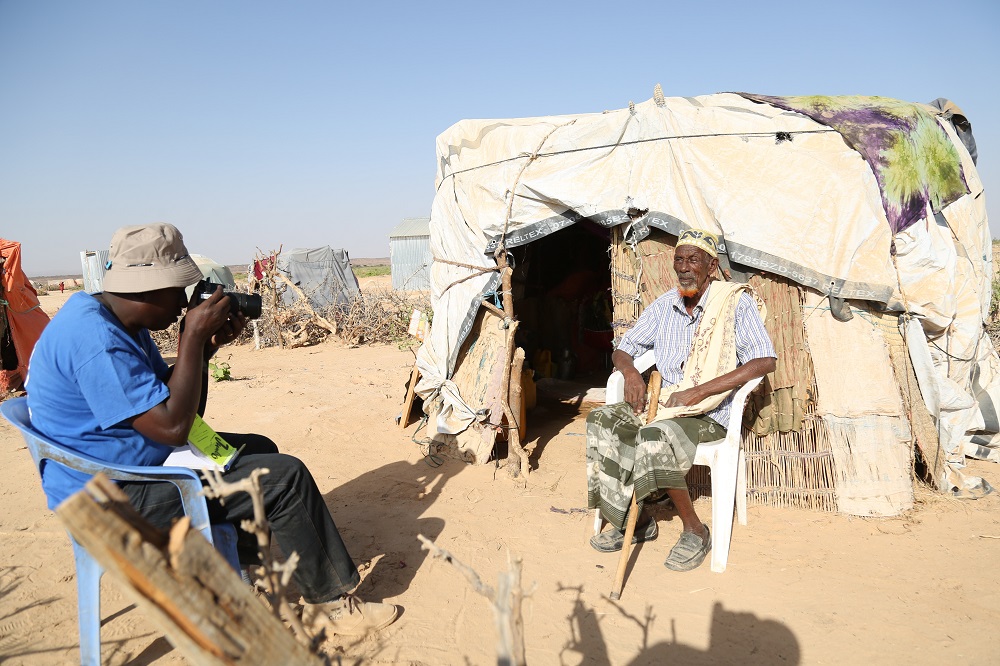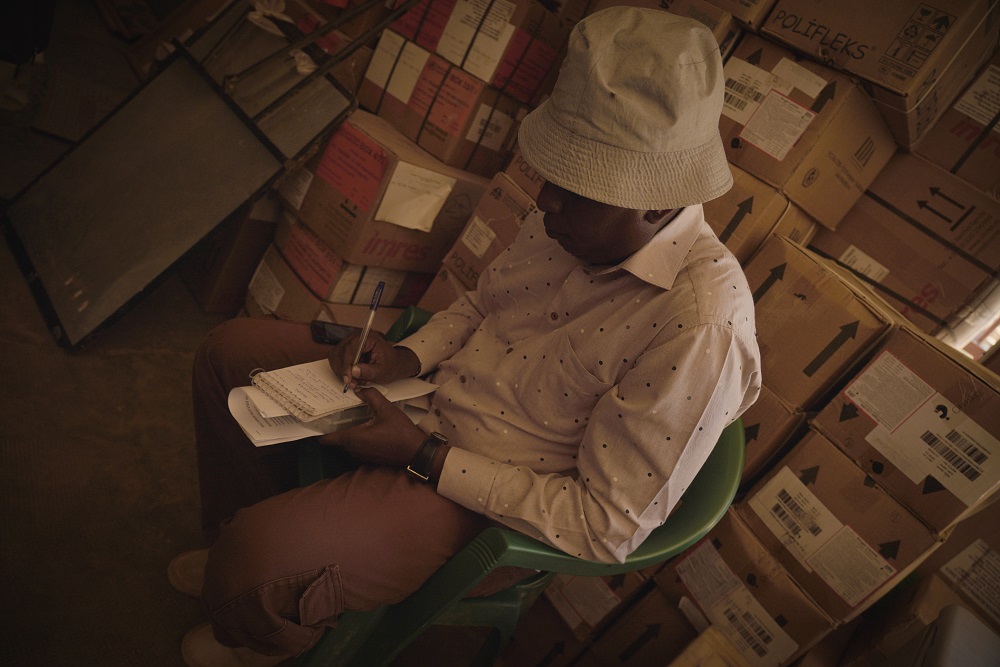Writing from partial lockdown in Kenya, Islamic Relief’s Charles Njanga reports on the ways in which Islamic Relief is adjusting to coronavirus to help communities under threat.
2020 started out very well and promised to be a good year. It was the beginning of another decade and things looked bright and full of promise. In February, I was part of a very successful documentation mission to west Africa and was looking forward to a very fulfilling year.
Then COVID-19 struck and everything changed. Life has not been the same since.
I’ve been working from home since the third week of March 2020. In Kenya, movement has been restricted and the government has asked people to work from home where possible. Four counties, including Nairobi, have been declared hotspots and are on a 21-day semi-lockdown with no movement allowed in or out of these regions.
For me, working from home has meant adjustments like finding a quiet corner of my house to work from and establishing a routine by maintaining normal working hours. Sometimes there are distractions like the smell of delicious food wafting from the kitchen.
For others in Kenya, and across east Africa, the challenges of lockdown are far greater.

Islamic Relief’s work is changing
In the east Africa region, the five countries that Islamic Relief works in are at different stages of the COVID-19 pandemic. In Kenya, there is a curfew in place from 7pm to 5am. There are also curfews in Sudan and South Sudan. In Ethiopia and Somalia, my colleagues are also working from home, as are those in Sudan where a lockdown is now in place.
The restricted movement has affected Islamic Relief’s work across the region. In Kenya, most projects have been suspended except ongoing construction work in Mandera in the north and Kilifi on the coast. Home visits by the child welfare department have been curtailed which means that the families of orphans may not see someone from Islamic Relief for quite some time. Instead, our staff are staying in touch with them by phone.
In Mandera, the closure of the Kenya border is having an effect on some of the people we help. Mandera shares a border with Somalia and Ethiopia and most food, including fruit, comes from these two countries. The border closure has led to a spike in food prices.
The restricted movement in Kenya is also affecting people’s livelihoods. The purchasing power of those who depend on manual labour has gone down as many people have stopped activities and adopted a wait-and-see attitude.
Our COVID-19 response plans
Islamic Relief Kenya has formed a COVID-19 response team and has launched an appeal to support the work we’ll be doing. Our interventions will include raising community awareness on safe practices through radio programmes and information materials such as brochures in Mandera, Wajir and Nairobi.
We’ll also be delivering personal protection equipment (PPE), including sanitisers and face masks in these three areas, and providing cash for over 300 vulnerable families in Wajir and Mandera.
Managing the pandemic
The Islamic Relief Nairobi office is right in the centre of the madness and we’ve been working from home for a month. A communication tree has been developed and everyone is keeping in touch using technology to share urgent communications regarding the pandemic and security issues. The staff have also been grouped into cells, geographically, with a warden who follows up each day with staff on the phone.
In Kenya, the United Nations (UN) and non-governmental organisations (NGOs) are seeking $267.5 million to respond to the most immediate and critical needs of 10.1 million people in the country. The UN says that women, people with disabilities, the elderly and people living with HIV face unique challenges due to the outbreak, requiring immediate gender-sensitive and age-sensitive action.
Our Ramadan food distribution plans in Kenya are being adjusted around restrictions to movement and in line with our strategy to keep people safe. We’re planning to support 3,295 households in Mandera, Wajir, Garissa and Nairobi, giving them food vouchers that can be redeemed at selected shops. Similar plans are underway in our other east Africa countries.
For Communications people like myself, this poses another challenge. How do we document the impact of our Ramadan programme if people receive food vouchers instead of food parcels? Will I have to be at the right place and at the right time to interview someone using a food voucher at a particular shop? Clearly, it’s not business as usual.

Thinking about the future
COVID-19 has reminded us that many things can be done using technology. Post COVID-19 we need to think about how we can use technology to work more efficiently, even sometimes from home.
What I miss during this crisis is the human interaction at the office. Some time back, if someone told me that I could miss going into work, I would have laughed at them. But I miss being able to take a walk around the office and say hi to people.
What I definitely do not miss is the crazy Nairobi traffic in the morning and evening. Nairobi traffic can really drive you up the wall. By the time you get to where you are going, you are already exhausted and a bundle of frayed nerves.
When all this is over, I will take a long trip out of town to just enjoy the fresh countryside air. I will take selfies with random farm animals and leave them with a bewildered look.
For now, I am focussed on helping the people who need our support and humbled by how important the work of Islamic Relief is. This is a very difficult time for those who were already vulnerable, and we need to be there for them more than we have ever been before.
Help vulnerable people across the globe during the COVID-19 pandemic. Donate to our Coronavirus Appeal and help save lives.










